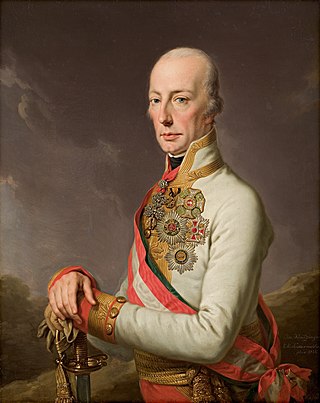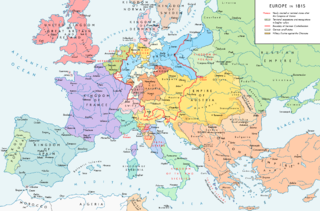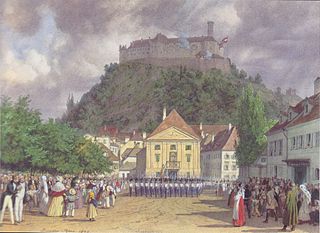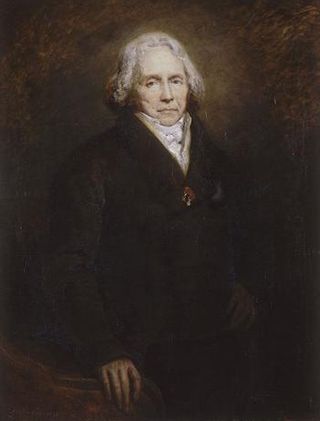Summary
The complex chain of Congresses is explained, which started after the end of the Napoleonic Wars in 1815, with the Congress of Vienna, and extended into the 1820s. The system was expected to give Europe peace and a new order after the violent struggles of the previous quarter-century.
The book also introduces the reader to the political biographies of two important characters of the time. The main character is Austrian Chancellor Klemens von Metternich. As the statesman of an old and fragile multilingual empire, Metternich had to deal with the task of organizing the alliance against Napoleon while he was forced to be ally of France. After Napoleon was defeated, Metternich became the organizer of the Congress system through which he sought the survival and advancement of the Austrian Empire.
An 18th-century rococo figure who was old-fashioned even in his own era but was described as having superlative diplomatic skills, Metternich pursued a peace for Europe based on restored monarchical principle and on solidarity among the monarchs of Europe. The 1789 French Revolution and the subsequent Napoleonic invasion and rule of much of Europe had implanted new liberal revolutionary ideas that were never to be eliminated.
Meanwhile, nationalism was rising over much of the world. The Austrian Empire was a complex political entity, with many ethnic groups and languages co-existing, which threatened its survival. Metternich expected to lead an alliance against France and to press only enough to depose Napoleon, who had shown a complete unwillingness to accept a moderate peace, but to preserve a strong France under a restored Bourbon monarchy as a counterweight to the power of Russia.
From 1812 onward, moderation was Metternich's guiding principle in the path to European order as he carried Austria from the forced alliance with France during Napoleon's invasion of Russia in which an Austrian corps, under Karl Philipp, Prince of Schwarzenberg, took part, to neutrality during the spring 1813 campaign and then as a leading member of the anti-French alliance that defeated France in 1813 and 1814. In the process, Metternich avoided breaking any of his treaties with his counterparts, as he knew that only established order among states would permit fragile Austria to survive.
Metternich was very skillful and so gained the confidence of all rulers at the many European congresses that followed. In his view, solidarity among monarchs would restrain the danger of liberal revolutions and diverse national upheavals around Europe.
The other great character is British Foreign Secretary Viscount Castlereagh. As the only British politician to understand Metternich's ambitions and reasoning and the need for an organized European order, he was strongly criticised in Britain for getting too involved in Continental Europe's politics in the name of British interests. After the Congress of Vienna, he was forbidden to attend any more European Congresses. He later committed suicide for unrelated reasons in 1822.
From then on, Britain started its long period of splendid isolation, which was based on its supposed insular invulnerability and its belief that the peace was a simple consequence of Napoleon's defeat. For Austria, a continental power, the reality was different. Another Napoleon could emerge at any time, and a strong European concert of conservative monarchs, based on principle, was necessary to prevent dangers before they arose.
Although the Congress system worked for only a few years, the concept and principles on which it was based allowed the longest period of peace among states in history with only a few minor interruptions. It was such a long peace that the faith in it and the forgotten consequences of war ended in an arms race, which was followed by a new much larger catastrophe in 1914.

Francis II or I was the last Holy Roman Emperor as Francis II from 1792 to 1806, and the first Emperor of Austria as Francis I from 1804 to 1835. He was also King of Hungary, Croatia and Bohemia, and served as the first president of the German Confederation following its establishment in 1815.

The Congress of Vienna of 1814–1815 was a series of international diplomatic meetings to discuss and agree upon a possible new layout of the European political and constitutional order after the downfall of the French Emperor Napoleon Bonaparte. Participants were representatives of all European powers and other stakeholders, chaired by Austrian statesman Klemens von Metternich, and held in Vienna from September 1814 to June 1815.

The Napoleonic Wars (1803–1815) were a series of conflicts fought between the First French Empire under Napoleon (1804–1815), and a fluctuating array of European coalitions. The wars originated in political forces arising from the French Revolution (1789–1799) and from the French Revolutionary Wars (1792–1802), and produced a period of French domination over Continental Europe. There were seven Napoleonic Wars, five named after the coalitions that fought Napoleon, plus two named for their respective theatres: (i) the War of the Third Coalition (1803–1806), (ii) the War of the Fourth Coalition (1806–1807), (iii) the War of the Fifth Coalition (1809), (iv) the War of the Sixth Coalition (1813–1814), (v) the War of the Seventh Coalition (1815), (vi) the Peninsular War (1807–1814), and (vii) the French invasion of Russia (1812).

Klemens Wenzel Nepomuk Lothar, Prince of Metternich-Winneburg zu Beilstein, known as Klemens von Metternich or Prince Metternich, was a conservative Austrian statesman and diplomat who was at the center of the European balance of power known as the Concert of Europe for three decades as the Austrian Empire's foreign minister from 1809 and Chancellor from 1821 until the liberal Revolutions of 1848 forced his resignation.
The Treaty of Paris, signed on 30 May 1814, ended the war between France and the Sixth Coalition, part of the Napoleonic Wars, following an armistice signed on 23 April between Charles, Count of Artois, and the allies. The treaty set the borders for France under the House of Bourbon and restored territories to other nations. It is sometimes called the First Peace of Paris, as another one followed in 1815.

The Concert of Europe was a general consensus among the great powers of 19th-century Europe to maintain the European balance of power, political boundaries, and spheres of influence. Never a perfect unity and subject to disputes and jockeying for position and influence, the Concert was an extended period of relative peace and stability in Europe following the Wars of the French Revolution and Napoleonic Wars which had consumed the continent since the 1790s. There is considerable scholarly dispute over the exact nature and duration of the Concert. Some scholars argue that it fell apart nearly as soon as it began in the 1820s when the great powers disagreed over the handling of liberal revolts in Italy, while others argue that it lasted until the outbreak of World War I and others for points in between. For those arguing for a longer duration, there is generally agreement that the period after the Revolutions of 1848 and the Crimean War (1853-1856) represented a different phase with different dynamics than the earlier period.

The Austrian Empire, officially known as the Empire of Austria, was a multinational European great power from 1804 to 1867, created by proclamation out of the realms of the Habsburgs. During its existence, it was the third most populous monarchy in Europe after the Russian Empire and the United Kingdom. Along with Prussia, it was one of the two major powers of the German Confederation. Geographically, it was the third-largest empire in Europe after the Russian Empire and the First French Empire.

The Holy Alliance was a coalition linking the monarchist great powers of Austria, Prussia and Russia, which was created after the final defeat of Napoleon at the behest of Emperor (Tsar) Alexander I of Russia and signed in Paris on 26 September 1815. The alliance aimed to restrain liberalism and secularism in Europe in the wake of the devastating French Revolutionary Wars and the Napoleonic Wars; it nominally succeeded in this until the Crimean War. Chancellor Otto von Bismarck managed to reunite the Holy Alliance following the unification of Germany in 1871, but the alliance again faltered by the 1880s over Austrian and Russian conflicts of interest over the dissolution of the Ottoman Empire.
The Conservative Order was the period in political history of Europe after the defeat of Napoleon in 1815. From 1815 to 1830, a conscious program by conservative statesmen, including Metternich and Castlereagh, was put into place to contain revolution and revolutionary forces by restoring the old orders, particularly the previously-ruling aristocracies. On the other hand, in South America, in light of the Monroe Doctrine, the Spanish and the Portuguese colonies gained independence.

The Congress of Laibach was a conference of the allied sovereigns or their representatives, held in 1821 as part of the Congress System which was the decided attempt of the five Great Powers to settle international problems after the Napoleonic Wars through discussion and collective weight rather than on the battlefield. A result of the Congress was the authorization of Austrian intervention in the Kingdom of the Two Sicilies in order to quell a liberal uprising.

Friedrich von Gentz was an Austrian diplomat and a writer. With Austrian chancellor von Metternich he was one of the main forces behind the organisation, management and protocol of the Congress of Vienna.
The Treaty of Chaumont was a series of separately-signed but identically-worded agreements in 1814 between the Austrian Empire, the Kingdom of Prussia, the Russian Empire and the United Kingdom. They were dated 1 March 1814, although the actual signings took place on 9 or 19 March. The treaty was intended to draw the powers of the Sixth Coalition into a closer alliance in case France rejected the peace terms they had recently offered. Each power agreed to put 150,000 soldiers in the field against France and to guarantee for twenty years the European peace against French aggression.
The Treaties of Reichenbach were a series of agreements signed in Reichenbach between Great Britain, Prussia, Russia, and Austria. These accords served to establish and strengthen a united coalition force against Napoleon I of France.

The First French Empire, officially the French Republic, then the French Empire after 1809 and also known as Napoleonic France, was the empire ruled by Napoleon Bonaparte, who established French hegemony over much of continental Europe at the beginning of the 19th century. It lasted from 18 May 1804 to 3 May 1814 and again briefly from 20 March 1815 to 7 July 1815.

Alexander I, nicknamed "the Blessed", was the emperor of Russia from 1801, the first king of Congress Poland from 1815, and the grand duke of Finland from 1809 to his death in 1825. He was the eldest son of Emperor Paul I and Sophie Dorothea of Württemberg.

Prince Klemens von Metternich was a German-born Austrian politician and statesman and one of the most important diplomats of his era, serving as the Foreign Minister of the Holy Roman Empire and its successor state, the Austrian Empire, from 1809 until the liberal revolutions of 1848 forced his resignation. His influence on historical developments on Europe has been the subject a numerous assessments. Some of the subjects that has been assessed are Metternich's over-all diplomatic skills and actual degree of influence, his role in shaping the balance of power in Europe, and his opposition to nationalist and liberal movements. Historians agree on Metternich's skill as a diplomat and his dedication to conservatism. According to Arthur May, he believed that:

The Frankfurt proposals were a Coalition peace initiative designed by Austrian foreign minister Klemens von Metternich. It was offered to French Emperor Napoleon I in November 1813 after he had suffered a decisive defeat at the Battle of Leipzig. The goal was a peaceful end to the War of the Sixth Coalition. The Allies had reconquered most of Germany up to the Rhine, but they had not decided on the next step. Metternich took the initiative. The Allies, meeting in Frankfurt, drafted the proposals under Metternich's close supervision. The British diplomat in attendance, Lord Aberdeen, misunderstood London's position and accepted the moderate terms.

The Secret Treaty of Vienna was a defensive alliance signed on 3 January 1815 by France, the Austrian Empire and Great Britain. It took place during the Congress of Vienna, negotiations on the future of Europe following Napoleon's defeat in the War of the Sixth Coalition.

The Congress of Châtillon was a peace conference held at Châtillon-sur-Seine, north-eastern France, from 5 February to 5 March 1814, in the latter stages of the War of the Sixth Coalition. Peace had previously been offered by the Coalition allies to Napoleon I's France in the November 1813 Frankfurt proposals. These proposals required that France revert to her "natural borders" of the Rhine, Pyrenees and the Alps. Napoleon was reluctant to lose his territories in Germany and Italy and refused the proposals. By December the French had been pushed back in Germany and Napoleon indicated that he would accept peace on the Frankfurt terms. The Coalition however now sought to reduce France to her 1791 borders, which would not include Belgium.














